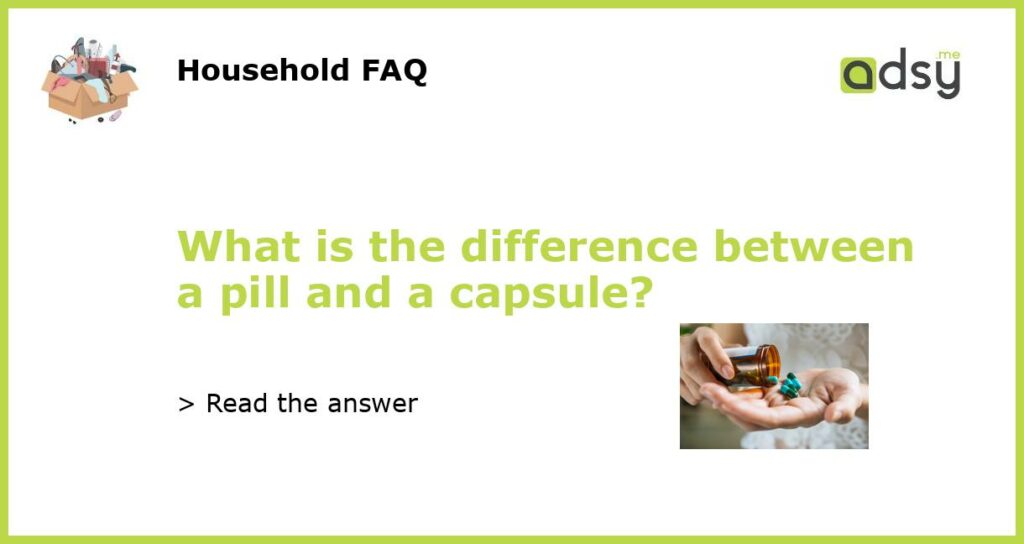Headline: Understanding the Difference Between a Pill and a Capsule
When it comes to taking medication, you may have noticed that some prescriptions are in the form of pills while others are in the form of capsules. While both serve the purpose of delivering medicine into your body, there are important differences between these two forms. In this article, we will explore the characteristics, composition, and advantages of pills and capsules, helping you gain a better understanding of the difference between the two.
Headline: Pills: The Traditional Solid Dosage Form
Pills are one of the oldest and most common methods of drug delivery. They are typically solid and come in various shapes and sizes. Pills are produced by compressing powdered ingredients into a compact form. The active ingredient, along with other excipients such as binders and fillers, are mixed together and compressed using specialized machinery to create the final product. Pills can be coated to improve their appearance, taste, and/or to control the release of the medication in the body.
One of the advantages of pills is their versatility in terms of formulation and customization. Different drugs require different release profiles, and pills can be designed to meet specific needs. For example, extended-release pills slowly release the medication over an extended period, allowing for less frequent dosing. Pills can also be designed to be chewable or easily crushed for patients who may have difficulty swallowing.
Headline: Capsules: A Modern Dosage Form
Capsules, on the other hand, are a more modern form of drug delivery. Unlike pills, capsules consist of two separate parts: a hard outer shell (capsule shell) and the inner contents (powder or liquid). The capsule shell is typically made from gelatin or, in the case of vegetarian or vegan options, from plant-based materials such as cellulose. The two halves of the capsule are filled with the medication and then sealed together, often using heat or a specialized adhesive.
There are several advantages to using capsules. For one, the capsule shell can be customized to release the medication in different ways. Immediate-release capsules release the medication quickly after ingestion, while delayed-release capsules release the medication in a specific part of the gastrointestinal tract. This allows for better targeted drug delivery and improved efficacy in certain cases. Additionally, some medications may have an unpleasant taste or odor, which can be masked by the capsule shell.
Headline: Differentiating Factors and Considerations
While both pills and capsules serve the purpose of delivering medication, there are a few key differences to consider. The first is the speed of drug release. Pills are typically faster-acting than capsules, as the dissolution process starts as soon as the pill comes into contact with fluids in the body. Capsules, on the other hand, may take longer to dissolve, particularly if they contain extended-release formulations.
Another important difference is the availability of customization options. As mentioned earlier, pills can be formulated with various special characteristics, such as extended-release or chewable formulations. Capsules, although they offer some flexibility in terms of release profiles, are generally less customizable compared to pills.
Headline: Choosing the Right Form for You
When it comes to choosing between a pill and a capsule, there are a few factors to consider. If you have trouble swallowing or prefer a chewable form, a pill may be a better option. On the other hand, if you have specific requirements for drug release or need to mask the taste or odor of the medication, a capsule may be more suitable.
Ultimately, the decision between a pill and a capsule should be made in consultation with your healthcare professional. They will take into account your specific medical needs, preferences, and any contraindications to ensure that the chosen dosage form is safe and effective for you.






